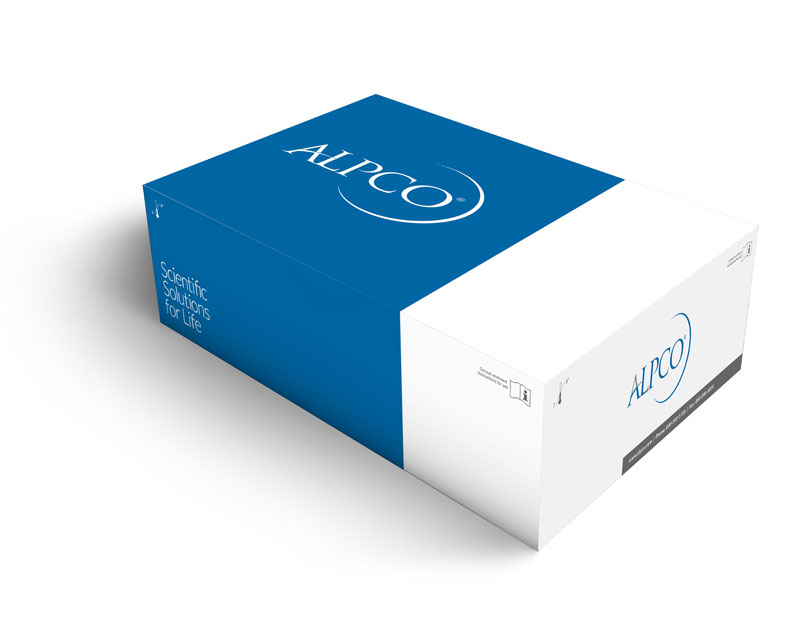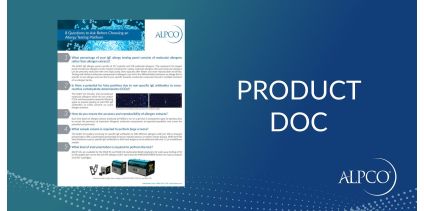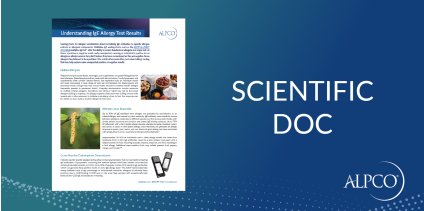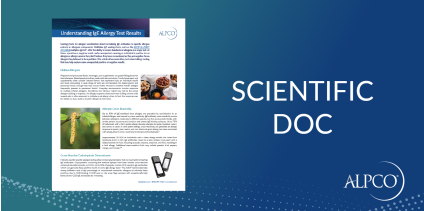Anti Tissue Transglutaminase-G ELISA (Anti-tTg-G ELISA)
$486.00
Catalog
35-TGGHU-E01
The Anti Tissue Transglutaminase-G ELISA is a solid phase enzyme immunoassay for the quantitative and qualitative detection of IgG antibodies against neo-epitopes of tissue transglutaminase (tTG) in human serum. The assay employing human recombinant transglutaminase crosslinked with gliadin-specific peptides displays neo-epitopes of tTG which ensures a significantly increased sensitivity and specificity of the test. The assay is a tool for the diagnosis of celiac disease (gluten-sensitive enteropathy). FDA Registered. For In Vitro Diagnostic Use.
Species
Human
Regulatory Status
FDA Registered. For In Vitro Diagnostic Use.
Product Distribution
Available in North America Only
Range
3 - 300 U/mL
Sensitivity
1.0 U/mL
Sizes
96 Wells
Sample Types
Serum
Inc Time Hour
1
Inc Time Overnight
No
Inc Time See Protocol
No
Sample Size
10
Detection
Colorimetric
Gluten-sensitive enteropathy or celiac disease is characterized by atrophy of the small intestinal villi leading to a so-called flat mucosa. It is caused by a pathological intolerance to gliadin, the alcohol-soluble fraction of gluten in wheat, rye and barley. As celiac disease is caused by the uptake of gluten, consequently a gluten-free diet cures the disease completely and thus has to be maintained for life-time. Renewed consumption of gliadin leads to a return of the symptoms. The disease is HLA-associated (>95% of patients have DQ2 enREFd by DQA1*0501 and DQB1*0201) and manifests at any age with a peak onset in early childhood, even in neonatals. The incidence rates range from 1 in 4000 to 1 in 300 in European countries.
Diagnosis of celiac disease is made by small intestinal biopsy (demonstrating flat mucosa) supported by serological markers. Antibodies against gliadin and anti-endomysium antibodies (EMA) are of major significance. They are detected so far by indirect immunofluorescence, which is restricted to subclass IgA only. The identification of tissue transglutaminase (tTG) as the major target antigen of EMA provided the opportunity of an easier and reliable diagnosis of celiac disease. tTG is an enzyme that upon wounding is released from cells where it is thought to aid in tissue repair.
Anti-tTG antibodies show higher sensitivity and specificity than anti-Gliadin antibodies. Furthermore, they correlate tightly with the activity of the disease and thus are especially useful for diet monitoring. The cross-link of tTG with gliadin-specific peptides results in neoepitopes of tTG. As these neo-epitopes are structurally closer to the physiological antigens, the tTG tests show a markedly increased sensitivity and specificity. These epitopes show no cross-reactivities with gliadin.
The determination of IgG antibodies to tTG is the only available specific serology for those 2% to 5% of patients with IgA deficiency. A high number of subclinical cases have been detected by screening for anti-tTG, fostering the theory that the majority of celiac disease cases is undetected and untreated (Iceberg model).







